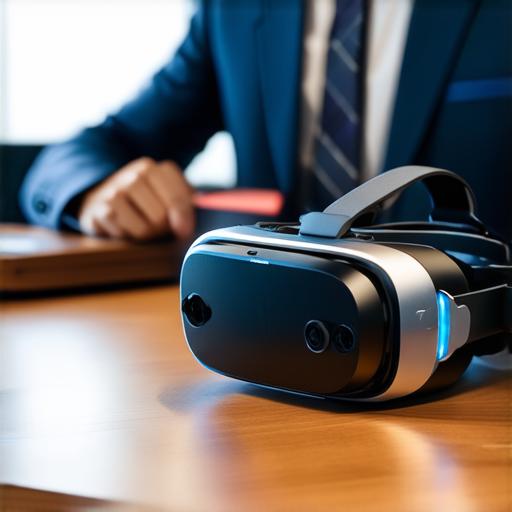Virtual reality (VR) is an exciting and rapidly growing field, with countless opportunities for businesses looking to innovate and engage their customers in unique ways. As an AR developer, you may be considering launching your own VR business, but the process can be overwhelming and complex.
I. Market Research: Understanding Your Target Audience
Before launching your VR business, it’s essential to conduct thorough market research to understand your target audience and identify their needs and preferences. This includes analyzing the competition, identifying trends, and conducting surveys or focus groups to gather feedback from potential customers. By doing so, you can develop a product or service that meets the demands of your target market and sets you apart from the competition.
Case Study: Oculus VR
Oculus VR is one of the leading VR companies in the world, with a strong focus on consumer-grade VR products such as the Oculus Quest. By conducting extensive market research, Oculus was able to identify the needs and preferences of their target audience and develop a product that met those demands. The Oculus Quest is a highly affordable, portable, and user-friendly VR system that has quickly become popular among gamers and enthusiasts alike.
II. Business Plan: Developing a Strategy for Success
Once you have conducted your market research and identified your target audience, it’s time to develop a comprehensive business plan that outlines your goals, strategies, and tactics for success. This includes developing a product or service that meets the needs of your target market, creating a strong brand identity, and establishing partnerships with key players in the industry.
Case Study: VRChat
VRChat is a social VR platform that allows users to create their own virtual worlds and interact with others in real-time. By developing a comprehensive business plan that focused on building a strong community and providing a unique and engaging experience, VRChat has been able to attract a loyal user base and establish itself as a leader in the social VR space.
III. Funding: Securing the Resources You Need to Succeed
Launching a VR business can be expensive, and securing funding is essential to ensure that you have the resources you need to succeed. This includes everything from seed funding to venture capital investments, and it’s important to carefully consider your options and choose the right funding source for your business.

Case Study: Magic Leap
Magic Leap is a leading VR company that has raised over $1.5 billion in funding to date. By securing significant funding from investors, Magic Leap has been able to develop cutting-edge VR technology and build a strong brand identity that has helped them stand out in the highly competitive VR market.
IV. Marketing Strategies: Attracting Customers and Building a Brand
Once you have launched your VR business, it’s essential to develop effective marketing strategies that will help you attract customers and build a strong brand identity. This includes everything from content marketing to influencer partnerships, and it’s important to carefully consider your options and choose the right marketing strategies for your business.




